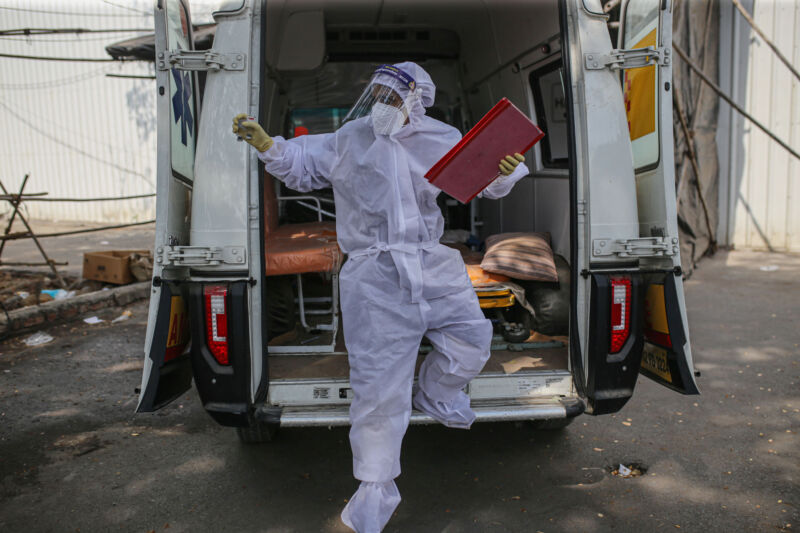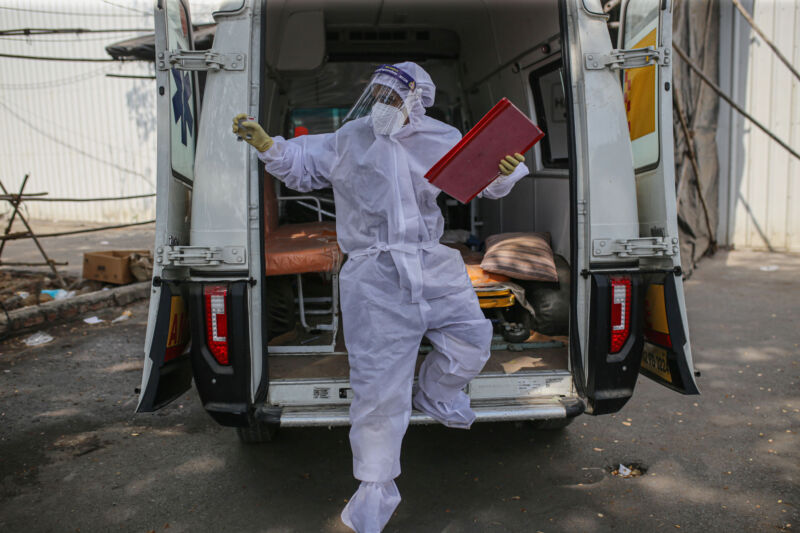
Enlarge / A health worker exits an ambulance outside a quarantine center in the Goregaon suburb of Mumbai, India, on Tuesday, April 27, 2021. (credit: Getty | Bloomberg)
As the pandemic coronavirus continues to ravage India, doctors are reporting a disturbing uptick in cases of a rare, potentially fatal fungal infection among people recovered or recovering from COVID-19.
The infection is called mucormycosis, or sometimes “black fungus” in media reports, and it appears to be attacking COVID-19 patients through the nose and sinuses, where it can aggressively spread to facial bones, the eyes, and even the brain (rhinocerebral mucormycosis). In other cases, the fungus can also attack the lungs, breaks in the skin, and the gastrointestinal system or spread throughout the body in the blood stream.
A classic feature of mucormycosis is tissue necrosis—the death of flesh, essentially—which, in the rhinocerebral form of the disease, can lead to black, discolored lesions on and in the face, particularly on the bridge of the nose and the roof of the mouth. Mucormycosis is fatal in around 50 percent of cases.



